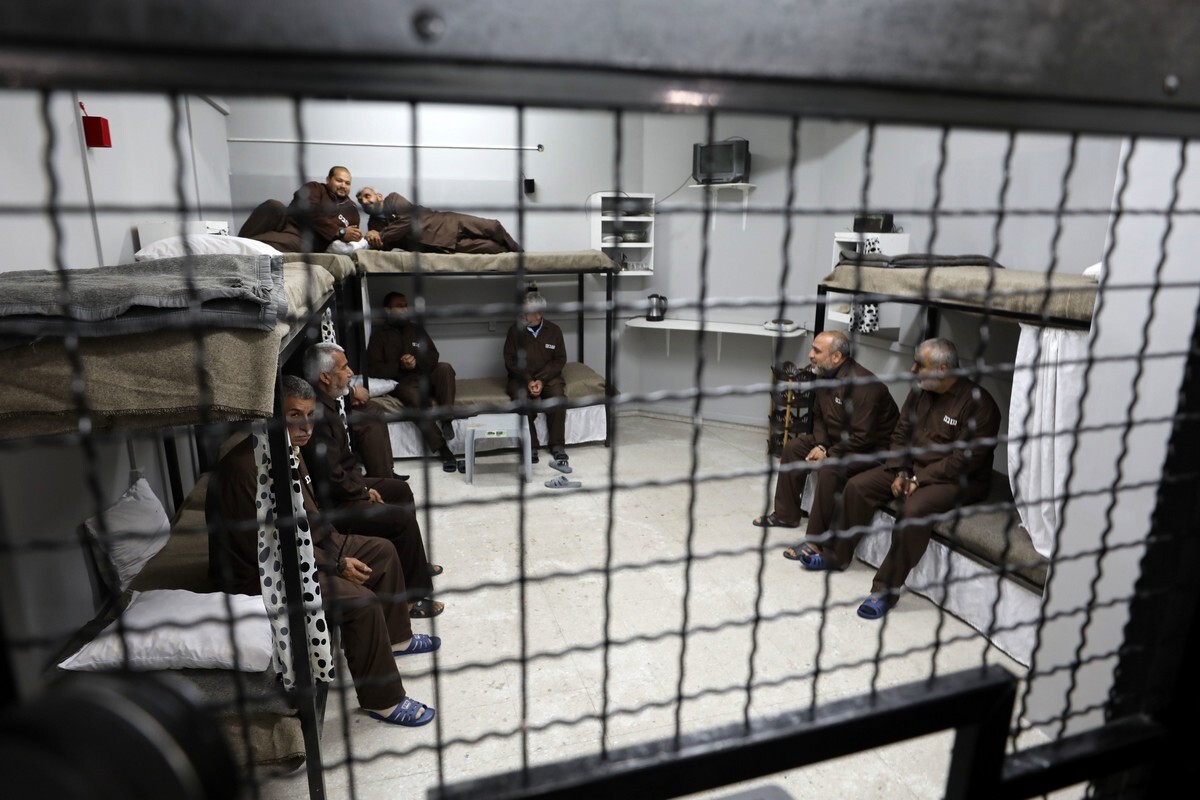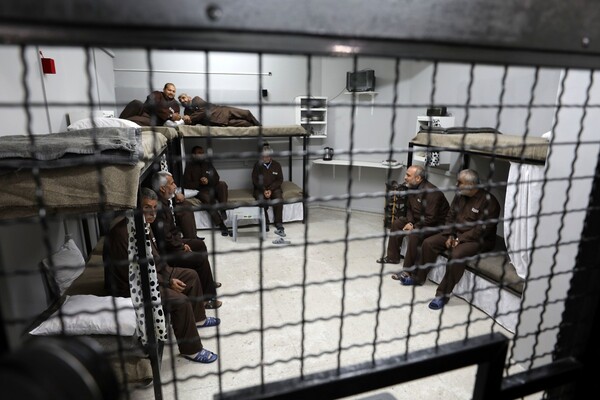PALESTINE
Thu 06 Jun 2024 9:32 pm - Jerusalem Time
An outbreak of skin diseases threatens the lives of Palestinian prisoners
The suffering of Palestinian prisoners in Israeli occupation prisons is increasing, especially after the 7th of last October, and today they face an outbreak of skin diseases amid medical negligence that poses a threat to their lives, according to a report published by Al-Araby Al-Jadeed newspaper.
About two weeks ago, the imprisoned Palestinian doctor Amjad Al-Hamouri, from the city of Hebron in the south of the West Bank, went on a hunger strike in the Negev Desert Prison after suffering from a skin disease without receiving treatment, in light of medical negligence, as is the case with many prisoners who have been afflicted with skin diseases. This has become a threat to their lives.
The wife of prisoner Amjad Al-Hammouri, Asmaa Al-Sharbati, says: “Her husband went on a hunger strike in protest against the prison administration’s refusal to provide him with the necessary treatment. He suffers from a skin disease and itching that has left him paralyzed, and he now faces a difficult health condition. He asked several times to be allowed to visit the prison clinic, but The administration rejected his request, which led to the widespread spread of the skin disease among the prisoners. What increases concern is that the family does not know information about him, in light of his continuous administrative detention since last October.
The danger affecting the lives of prisoners in Israeli prisons is increasing, especially after receiving testimonies from released prisoners about the spread of skin and other epidemic diseases among prisoners, in addition to depriving them of the minimum requirements for treatment and medical care, while the prison administration prevents lawyers from visiting them on a regular basis, or allows institutions International and concerned with prisoners' issues to meet with them.
The head of the Palestinian Prisoners and Ex-Prisoners’ Affairs Authority, Qaddoura Fares, says: “The conditions of prisoners in Israeli occupation prisons are still difficult, amid fears of the spread of unknown diseases among them, which poses a threat to their lives.” He points out the growing danger, especially since visits to prisoners by lawyers are still difficult due to the occupation continuing to assault and beat them as they go out for visits, as happened during the last visit of the Commission to the Negev prison about a week ago.
The Palestinian Prisoners' Club had previously published a statement about the spread of skin diseases among prisoners. It stated: “There is a large and unprecedented increase in the number of prisoners suffering from skin diseases in the Israeli occupation prisons, specifically scabies, which is considered one of the most dangerous contagious skin diseases, in addition to prisoners suffering from other contagious skin diseases whose nature the prisoners were not able to know.”
About two weeks ago, the Israeli occupation forces released prisoner Abdel Basset Maatan from the city of Al-Bireh, adjacent to the city of Ramallah in the central West Bank, who was suffering from cancer. He was released from the Negev prison, where the rest of the prisoners have been suffering as a result of the spread of a skin disease among them for about a month and a half. Throughout the past period, the prison administration did not allow any prisoner to visit the medical clinic or obtain the minimum necessary treatment, while signs of scabies, bleeding, and inability to move and walk began.
Maatan attributes the spread of skin diseases among prisoners to depriving them of the use of water for three continuous months after the start of the war, then depriving them of using cleaning methods such as soap and towels, restricting the use of water for one hour a day for bathing, and preventing the entry of their personal clothing. Prisoners have been wearing the same clothes for many months since the moment of their arrest, in addition to the overcrowding of the family rooms and the placement of ten or more prisoners in rooms that can accommodate only four.
Maatan points out that the prison administration allows five patients to go to the medical clinic out of every 100 prisoners in need of treatment, and the treatment of nurses in the prison medical clinic is no less bad than the treatment of the guards, who spent 22 months in administrative detention. Since last October 7, he has been allowed to visit the medical clinic once, during which he was not given what he requested, which was an analgesic medication, or a cup of water with sugar.
Moreover, the Negev Prison's repression unit, called (Taker), did not stop oppressing and beating prisoners without justification. Regarding his experience with beatings, Maatan says: “The day before my release, I was taken to the waiting room known as Al-Makhloul, and I was beaten in various parts of my body despite the fact that the jailers knew that I had cancer, which led to my eyes being greatly swollen and swollen. Then they returned me to the prison room without providing treatment.” I then fainted. Following the incident, a nurse came to the department and responded provocatively to the prisoners by saying that the treatment for eye swelling was for the prisoner to place his eyes on the iron bars of the bed.”
According to the Palestinian institutions concerned with prisoners’ affairs, the number of prisoners in Israeli occupation prisons is about 9,300 male and female prisoners, including hundreds of patients, in light of escalating medical neglect that threatens their lives.






Share your opinion
An outbreak of skin diseases threatens the lives of Palestinian prisoners